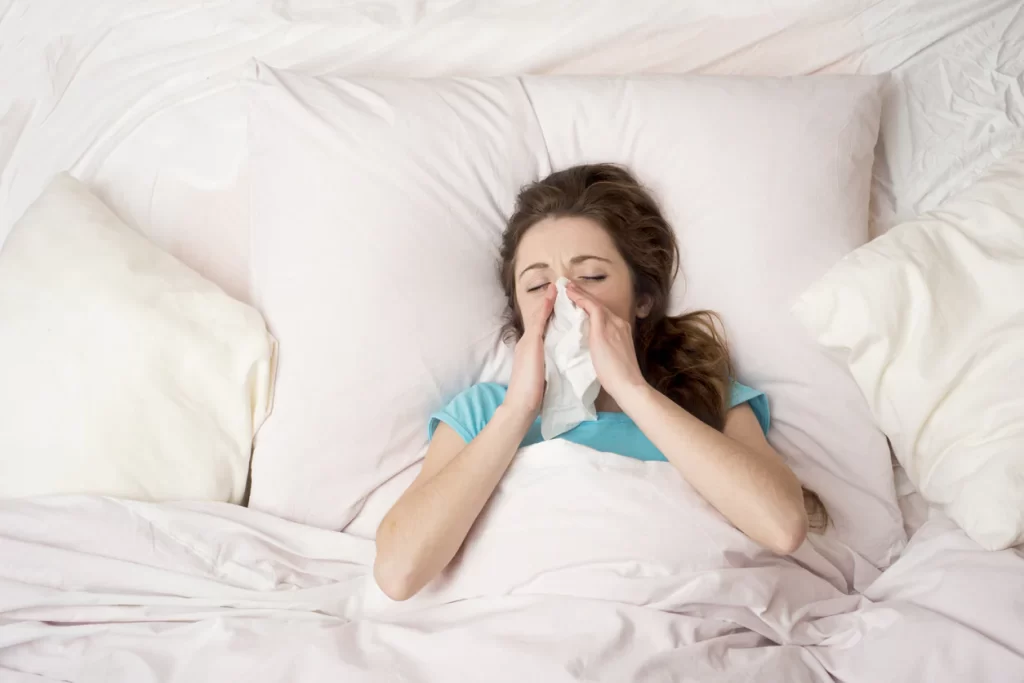The Ultimate Guide to Managing Allergies

Allergies can severely impair your quality of life, leading to symptoms like sneezing, itching and congestion. But there are numerous natural allergy remedies you can try at home in order to ease these symptoms and return balance back into your life.
The Ultimate Guide to Managing Allergies provides useful advice on reducing allergic reactions, such as keeping a clean home, using an air purifier, changing clothes when coming indoors from outdoor activity and avoiding certain foods.
Know What Triggers Your Symptoms
Allergies can lead to itchy eyes, runny nose and other uncomfortable symptoms. An allergic response occurs when your immune system mistakes food, pollen or pet dander as something dangerous and causes an allergic response in response.
When exposed to allergens, our immune systems release histamine which can irritate our skin, eyes, nasal passageways and lungs as well as potentially leading to life-threatening reactions such as anaphylaxis (which could result in coma or even death without immediate medical attention). Histamine release can result in skin rashes as well as potentially life-threatening reactions such as anaphylaxis; histamine release can irritate them further resulting in symptoms ranging from minor irritation through to life-threatening anaphylaxis attacks caused by exposure.
Understanding what triggers your allergies is key to keeping them at bay and living an enjoyable life. A symptom diary will also help track when symptoms appear most frequently and allow you to determine which home remedies or natural solutions work best – these tend to be safer options with reduced side effects than conventional medicines.
Change Your Clothes as Soon as You Return Home
When returning from outdoor activity, taking steps such as placing your clothing in a hamper near the front door will reduce exposure to pollen or allergens which may have latched onto it and increased your exposure. You should also remove hats, jackets and sunglasses as soon as you enter your home to reduce spreading any allergens they contain into other rooms of the home.
Regularly cleaning your home with natural cleaning solutions can also be effective at eliminating allergens. Hypoallergenic covers for pillows and mattresses may help reduce dust mites and pet dander in your home. Finally, herbal infusions or nasal rinses could also provide effective relief; but always consult a healthcare provider prior to taking supplements.
Check the Pollen Count
Tracking daily pollen counts and avoiding outdoor activities when levels are highest can help you better manage allergy symptoms. Many websites and apps offer up-to-the minute pollen counts.
Oak tree pollen, in particular, can trigger allergic reactions from February through May and cause itchy eyes, runny nose and congestion. Keep track of pollen counts to avoid exposure when planning outdoor activities later in the day or after it rains – when pollen levels may be lowest.
Closed windows during peak pollen hours can help alleviate symptoms. After spending time outside, showering and changing clothes to rid yourself of pollen lingering on your body can also help. Rinsing nasal passages with an over-the-counter saline spray may also flush away allergens and ease symptoms.
See Your Healthcare Provider
If your allergies are having a major impact on your quality of life, or are affecting it negatively, speak with your healthcare provider about managing them. They can help identify which allergens you’re sensitive to as well as prescribe medications and other treatments.
Your healthcare provider may also suggest natural remedies for allergies, including herbal preparations, nasal rinses and acupuncture. Some have shown promise in research; before taking any dietary supplement for allergy relief. Furthermore, be sure to inform them of other conditions or prescription drugs you’re taking that could potentially interact negatively with any such supplements; regular visits with healthcare provider ensure safe and effective treatment options are offered.







